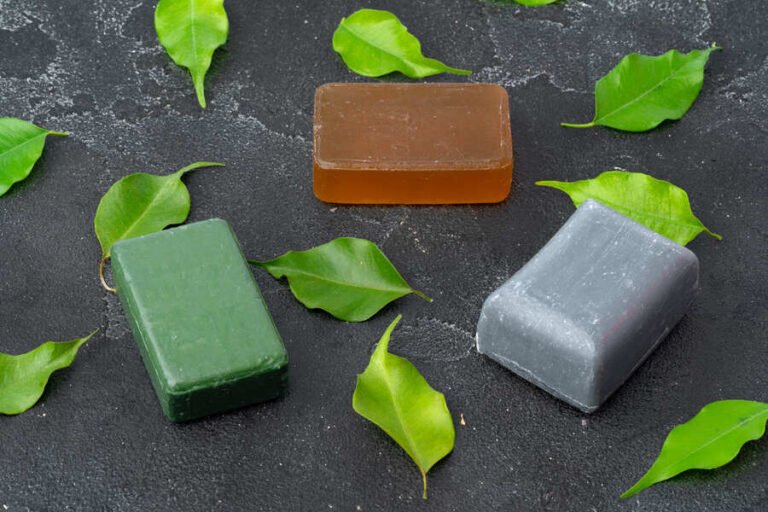Tired of the endless shampooing and conditioning routine? Wondering if you can skip the shampoo and just use conditioner? Well, you're not alone. Many people are embracing the idea of conditioning without shampoo.
In this article, we'll explore the benefits of this unconventional hair care routine, how it improves hair health, and the different types of conditioners available. We'll also address concerns and offer tips for optimal results.
If you're curious about liberating your hair care routine, keep reading to find out if you can use conditioner without shampoo.
Key Takeaways
- Conditioning without shampooing is common and many people prefer to use conditioner without shampoo or use shampoo less frequently.
- Conditioner can provide necessary nutrients, protect hair from damage, and promote faster hair growth.
- Regular use of conditioner improves hair elasticity, reduces breakage, and reduces the need for regular trims.
- Different types of conditioners serve various purposes, including rinse-out conditioners and cleansing conditioners that can be used without shampooing.
Benefits of Using Conditioner Without Shampoo
Using conditioner without shampooing can help maintain the health and moisture of your hair. This conditioning method, also known as co-washing, offers several benefits for those who desire liberation from the traditional shampooing routine.
Co-washing allows you to avoid the potential drying effects of shampoo, as some shampoos can strip the hair of its natural oils. By skipping shampoo and using conditioner alone, you can retain the necessary moisture in your hair, preventing it from becoming dry and brittle.
Additionally, co-washing can help reduce frizz, enhance the natural texture of your hair, and promote overall hair health. The nourishing ingredients in conditioners provide essential nutrients, repair damaged hair, and protect it from further damage.
Incorporating co-washing into your hair care routine can lead to softer, healthier, and more manageable hair.
Different Types of Conditioners for No-Shampoo Hair Care
When conditioning your hair without shampoo, you have access to a variety of different types of conditioners to choose from. These conditioners cater to different needs and preferences, allowing you to find the perfect one for your no-shampoo hair care routine.
One popular option is the cleansing conditioner, which can replace shampoo and gently cleanse and nourish your hair. This alternative cleansing method, also known as co-washing, offers the benefits of both cleansing and conditioning in one product.
Another type of conditioner is the rinse-out conditioner, commonly used after shampooing to provide instant results. It's suitable for regular conditioning and making your hair slippery.
Whether you opt for a cleansing conditioner or a rinse-out conditioner, both can be used effectively when washing hair without shampoo.
Rinse-Out Conditioner Vs Cleansing Conditioner: Which Is Right for You
Are you unsure which type of conditioner is the right choice for you: a rinse-out conditioner or a cleansing conditioner? Let's explore the pros and cons of co-washing with a cleansing conditioner first:
Pros of co-washing with a cleansing conditioner:
- Gently cleanses the hair without stripping away natural oils.
- Can help maintain moisture and hydration in the hair.
- Suitable for individuals with curly or textured hair who want to preserve natural oils and enhance curl definition.
Cons of co-washing with a cleansing conditioner:
- May not effectively remove heavy product buildup or excess oil.
- Not ideal for individuals with oily hair or scalp conditions like dandruff.
- Requires thorough rinsing to prevent product buildup.
Now, let's discuss how to incorporate a rinse-out conditioner into a no shampoo routine:
- Apply a small amount of rinse-out conditioner to the lengths and ends of your hair after washing with water.
- Leave the conditioner on for a few minutes to allow it to penetrate and moisturize the hair.
- Rinse thoroughly to remove any residue.
- Repeat this process whenever you wash your hair without shampoo.
Remember to choose the conditioner that best suits your hair type and desired results. Experimenting with different products and techniques will help you find the perfect conditioner for your no-shampoo routine.
Choosing the Right Conditioner for Your Hair Type
Find the conditioner that best suits your hair type and achieve the desired results. Choosing the right conditioner is crucial for maintaining healthy and hydrated hair.
Hydration is essential for all hair types, as it helps prevent dryness, breakage, and frizz. For fine or thin hair, opt for lightweight conditioners that won't weigh down your strands. Look for volumizing formulas that add body and thickness.
If you have thick or textured hair, go for more moisturizing and nourishing conditioners to combat dryness and enhance your natural curls or waves.
It's also important to consider any specific concerns you may have, such as color-treated or damaged hair, and choose conditioners that address those needs.
Potential Drawbacks of Conditioning Without Shampoo
Using conditioner without shampoo can lead to product buildup and potential hair damage. While conditioning without shampoo can be convenient and time-saving, it's important to be aware of the potential drawbacks.
Here are some tips for effective conditioning without shampoo:
- Product buildup: When you only use conditioner without shampooing, product residue can accumulate on your scalp and hair. This buildup can make your hair feel heavy and greasy, and it can also lead to dryness and weak hair. To avoid this, consider using a clarifying shampoo occasionally to remove any buildup.
- Weak hair and potential damage: Over-conditioning without shampooing can weigh down your hair and make it look limp and greasy, especially if you have fine or thin hair. Additionally, not cleansing your hair properly can lead to potential damage, as dirt, sweat, and styling products can clog your hair follicles and hinder healthy hair growth.
- Tips for effective conditioning: If you choose to condition without shampooing, make sure to focus on the ends of your hair rather than applying the conditioner directly to your scalp. This can help prevent excess oiliness. Additionally, consider using a cleansing conditioner or co-wash to remove excess oil and dirt without stripping too much moisture from your hair.
Transitioning to a No-Shampoo Regimen: What to Expect
When transitioning to a no-shampoo regimen, expect an adjustment period for your hair and scalp. It's common to experience some challenges during this transition phase.
One of the most common misconceptions is that your hair will instantly feel dirty. However, this is simply your scalp adjusting its oil production.
Another challenge you may face is product buildup, which can occur when using conditioner without cleansing. This can lead to dry and weak hair, as well as potential dandruff issues.
Additionally, over-conditioning can weigh down your hair, making it look limp and greasy, especially if you have fine or thin hair. It's important to find the right balance and avoid going too long without shampooing to prevent over-conditioning and product buildup.
Tips for Using Conditioner Without Shampoo for Optimal Results
To achieve optimal results, make sure to rinse out the conditioner thoroughly after application.
Here are some tips for using conditioner without shampoo to get the best results:
- Common misconceptions about using conditioner without shampoo:
- Contrary to popular belief, using conditioner without shampoo doesn't make your hair greasy. In fact, it can help balance the natural oils in your hair and keep it hydrated.
- Another misconception is that conditioner alone can't clean your hair. While it may not remove heavy dirt and product buildup like shampoo, it can still remove light impurities and refresh your hair.
- How to properly apply conditioner without shampooing:
- Start by wetting your hair with warm water to open the hair cuticles.
- Apply a generous amount of conditioner to your hair, focusing on the mid-lengths and ends.
- Use a wide-toothed comb or your fingers to distribute the conditioner evenly.
- Leave the conditioner on for a few minutes to allow it to penetrate the hair shaft.
- Rinse thoroughly with cool water to close the cuticles and seal in moisture.
Exploring Alternative Cleansing Methods for No-Shampoo Hair Care
Try incorporating other cleansing methods into your no-shampoo hair care routine to keep your hair clean and healthy.
While conditioner can help moisturize and nourish your hair, it may not provide enough cleansing power on its own. Luckily, there are alternative cleansing methods you can explore.
One option is to use a cleansing conditioner, which combines the benefits of a conditioner and a gentle cleanser. This can be especially beneficial for individuals with curly or textured hair.
Another alternative is co-washing, which involves using a conditioner to cleanse your hair instead of shampoo. This method can help maintain the natural oils in your hair while still removing dirt and buildup.
Additionally, you can try using natural cleansers such as apple cider vinegar or baking soda to clarify your scalp and remove excess oil.
Maintaining Healthy Hair With Conditioner-Only Washing
You can effectively maintain healthy hair by regularly washing with conditioner only. The conditioner-only method, also known as co-washing, offers several benefits for your hair.
Here are some key advantages of using conditioner without shampoo:
- Retains Natural Oils: Co-washing helps preserve the natural oils in your hair, preventing it from becoming dry and brittle.
- Hydrates and Nourishes: Conditioners are formulated with nourishing ingredients that moisturize and repair damaged hair, leaving it soft and manageable.
- Reduces Breakage: Regular use of conditioner improves hair elasticity, reducing breakage when brushing or styling.
Frequently Asked Questions
Can I Use Conditioner Without Shampoo if I Have Oily Hair?
Yes, conditioner can help moisturize and maintain the health of oily hair, but it's important to avoid over-conditioning. It can remove excess oil and dirt without stripping too much moisture, but it may not fully replace shampoo for oily hair.
How Often Should I Use a Rinse-Out Conditioner Without Shampooing?
You can use a rinse-out conditioner without shampooing as often as you feel necessary. It can provide benefits like moisturizing and maintaining hair health. Experiment with frequency to find what works best for you.
Can I Use a Deep Conditioner Without Shampooing My Hair First?
Yes, you can use a deep conditioner without shampooing first. Deep conditioners provide intensive hydration and nourishment to your hair, making it healthier and stronger. The no poo method can be effective in maintaining your hair's health and moisture balance.
Are There Any Alternative Cleansing Methods for No-Shampoo Hair Care?
Yes, there are alternative cleansing methods for no-shampoo hair care. Conditioner only washing, or using cleansing conditioners, can effectively cleanse and nourish the hair without stripping away too much moisture.
How Can I Maintain Healthy Hair With Conditioner-Only Washing?
To maintain healthy hair without shampoo, co-washing is beneficial for dry hair. It helps maintain curls and provides moisture. Conditioner can be used without shampooing, but avoid over-conditioning to prevent weighed-down or greasy-looking hair.
Conclusion
So, can you use conditioner without shampoo? Absolutely!
By ditching the shampoo and embracing conditioner-only washing, you can achieve healthier, more luscious locks.
Not only does conditioner without shampoo reduce the need for constant washing, but it also helps improve the overall health and appearance of your hair.
So why not give it a try and break free from the never-ending shampoo cycle?
Your hair will thank you!







